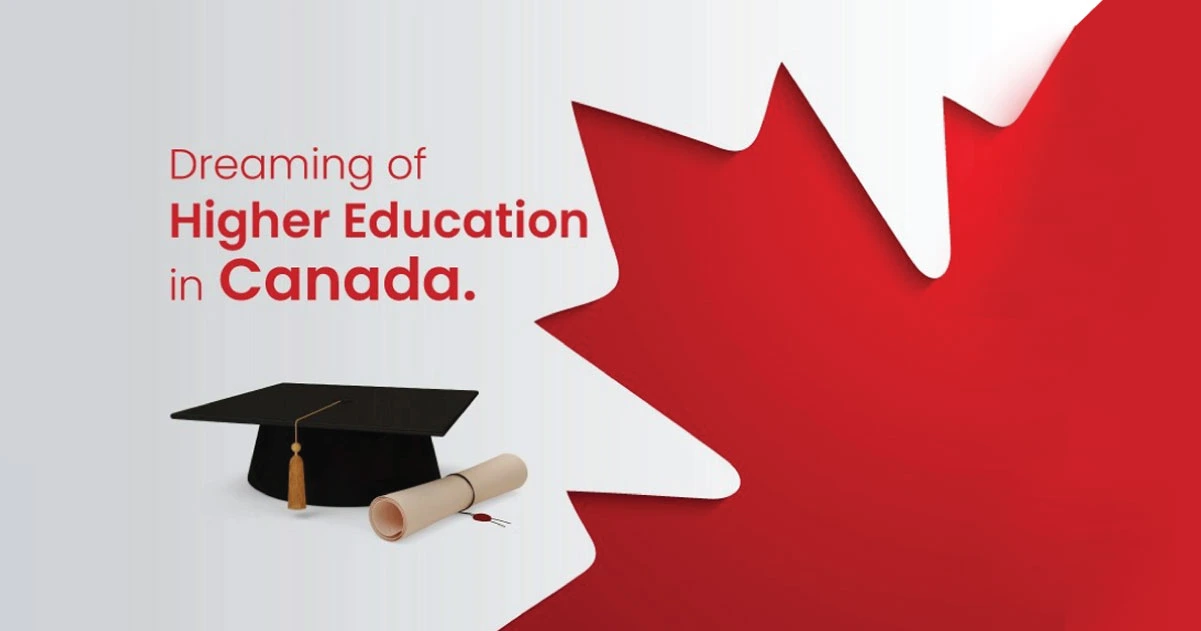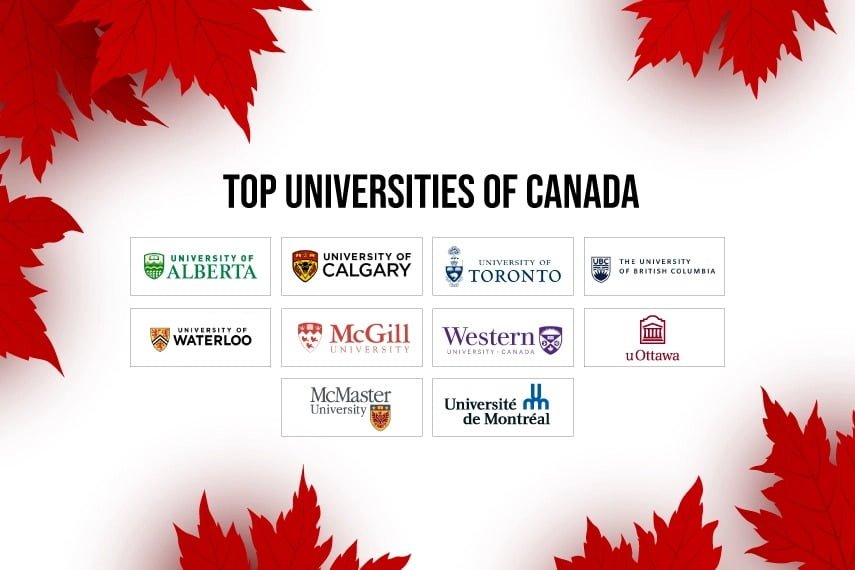- Need Consultation? Make an Appointment

Studying abroad is a dream for many Bangladeshi students, and Canada is a top choice with its excellent universities, diverse culture, and promising job opportunities post-graduation. However, the process of getting a Canadian student visa may seem complex for some.
Explore this comprehensive, step-by-step guide tailored for Bangladeshi students to navigate the Canadian visa application process successfully. Discover eligibility criteria, get tips on document preparation and interviews, understand funding evidence, learn about visa processing times, and demystify post-visa steps upon arriving in Canada as an international student.
With the proper preparation, using this article as a roadmap, every Bangladeshi student will have the tools to increase their chances of securing a visa to fulfill their Canadian higher education dreams.
Applying for a student visa to Canada from Bangladesh involves a systematic 8-step process:
The first step is to confirm you meet Canada’s eligibility criteria: academic standing, English test score requirements, valid passport, and proof you can support tuition fees. Once they confirm eligibility, you can research and select a Canadian DLI with approved programs and the location that you wish to study.
Next, once a Canadian DLI offers admission, obtain the acceptance letter and register for IELTS or other qualifying English tests. While waiting for test dates, start compiling required financial evidence like education loan approval letters, fixed deposit certificates, and bank statements showing available funds to support your entire program of study.
With the acceptance letter and English language score in hand, submit the visa application online through IRCC’s portal. Then, Schedule and complete your biometrics appointment at the VFS Global visa application center.
Finally, diligently prepare for your visa interview to increase the chances of approval on the first attempt.
The main application form all prospective Bangladeshi students must complete is the IMM 1294e Application for Study Permit Made Outside of Canada. This comprehensive form captures all your biographical data, education history, intended Canadian institution, financial details, and more that will be assessed during processing.
In addition, Bangladeshi applicants must undergo a biometrics appointment at designated VFS Global visa application centers in Dhaka or Chittagong to submit fingerprints. As part of the biometrics process, you complete Form IMM 5409 at these centers, and it collects your digital signature.
You may also, at times, need to complete and attach Schedule A forms for background information if you have previously studied in Canada or held prior work permits or visiting visas. Occasionally, you may need Schedule 1 forms if you have accompanying family members joining as dependents.
Finally, all applicants must carefully review and sign the IMM 5451 Document Checklist to confirm all required documentation based on their credentials is complete before submission through the IRCC web portal. Staying on top of these critical forms ensures your Canada study permit dreams remain on track.
Some critical Canadian study permit rules for Bangladeshi applicants are:
The first step is creating an account on Immigration, Refugees and Citizenship Canada’s (IRCC) online portal, which allows you to securely save, access, and submit your application.
Once logged in, you will need to complete the 100+ questions on the IMM 1294e study permit application form. Questions range from personal details to address history, educational background, financial position, and intentions for studying in Canada. Take time to provide accurate responses.
The system allows saving progress, so you don’t have to finish in one sitting. You must also scan and upload required supporting documents like acceptance letters, English test results, passport pages, and financial evidence.
After completing the form and paying the CAD 150 non-refundable study permit processing fee online via credit card, finalize the submission to IRCC via the portal.
Post submission and track application status updates directly through your IRCC account. Most Bangladeshi students receive requests for medical examinations or interview scheduling via web portal notifications—address promptly per instructions provided.

You have to prove you can cover tuition fees for your first year of study plus another $CAD 10,000 for living expenses. Overall, you may need between $CAD 25,000 to $40,000 or more in your bank account based on your school and program choice.
Getting your financial documents in order is critical when applying for a Canadian study permit from Bangladesh. Here is an overview of the necessary bank statements:
One of the mandatory documents is an education loan sanction letter from a scheduled bank in Bangladesh confirming approval of a loan covering your tuition fees for the entire program duration in Canada. This establishes the primary funding source for the program itself.
In addition, since Canada requires international students to show proof of funds for living expenses, you need a separate fixed deposit certificate made in your name showing a minimum available balance of Canadian $10,000 for each year of study. Ensure that funds cannot be drawn down except in case of extenuating circumstances by holding this as an FD rather than savings.
Finally, include the latest 6 months’ bank account statements from your personal savings account displaying your name and current balance. This further supplements your financial credibility. Ensure all monetary values depicted are easily identifiable in either Canadian dollar or Bangladeshi Taka currencies.
Have all bank letters and statements officially endorsed with the bank seal and manager’s signature for authenticity? Stay in close contact with your bank to ensure timely issuance when needed. With these key financial documents, you can showcase your means to fully fund your Canadian student journey.
Interviews are rarely required as Canada student visa requirements, provided you submit a complete application with sufficient documentation. Officers conduct background checks, and they may write or call for clarification or additional documents. If called for an interview, answer honestly.
IELTS/TEF is mandatory for most Canadian study permits. Only applications through designated institutions with recognized internal English tests may get exemptions on a case-by-case basis.
You need to provide valid IELTS General or TOEFL scores to show English/French language proficiency, with minimum scores ranging from 6.0 in the TEF exam to 7.0 or higher in IELTS (dependent on age and chosen school/program).
In your study plan, detail your chosen program/major, preferred school, application status, the planned duration of the study, cost breakdown, and funding sources. Explain how your program aligns with previous education and future career goals, as well as ties to Bangladesh.
You can check your Canadian visa status online by signing in to your IRCC account. It displays updates and final decisions.
Only 65-70% of Canadian student visa applications from Bangladesh get approved, Because of poor documentation, lack of finances, English proof, or ties to the home country, according to visa co
nsultants. The average processing time is 12-16 weeks if successful.
Common reasons for refusal include:
No, a Statement of Purpose (SOP) is not an official mandatory requirement when applying for a Canadian study permit from Bangladesh. However, it is still highly recommended to include an SOP that complements your overall visa application.
The SOP gives crucial context on your motivations, career goals, and rationale for wanting to study in Canada. It allows you to express your individual story beyond just academic scores and financial paperwork. Since visa officers spend only minutes reviewing applicant profiles, an SOP helps you stand out.
Key things to cover in your student visa SOP include:
Keep the SOP 1-2 pages focused on your unique personal and professional circumstances. Have educators or advisors proofread it before including it with your other visa documents.
Yes, international students can work up to 20 hours per week during semesters and full-time during summers/breaks. You need to apply for a separate work permit after getting your study permit approval. Having a job can help offset living costs.
A designated Canadian education institution can sponsor your student visa after you receive an acceptance letter for a full-time program. This includes universities, colleges, CEGEPs, secondary schools, and language schools. As a Bangladeshi, you cannot get sponsored by a family member or individual.
As a Bangladeshi, you must be self-sponsored for a student visa. If your family member works in Canada, they cannot directly sponsor your study permit application through funds or invitations.
There are no specific age limits for Canadian student visas. However, the age of the applicant and stage of life are considered when assessing genuineness and ties to Bangladesh, as older applicants may find it harder to prove.
So, in summary, while Canadian student visas have high eligibility criteria for Bangladeshis relating to finances, academics, background, and ties to the homeland – thorough preparation of your visa file can help maximize your chances of success.